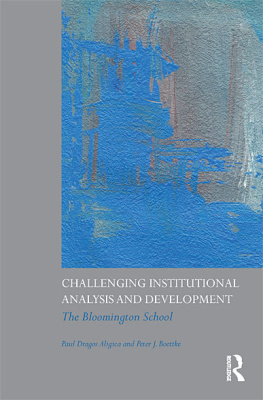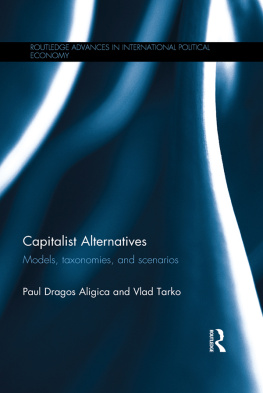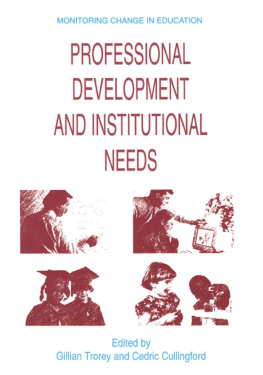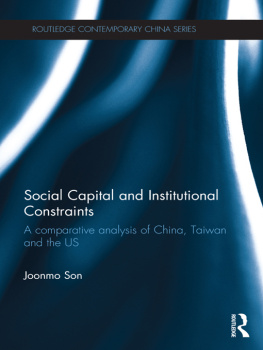Challenging Institutional Analysis and Development
The Bloomington School has become one of the most dynamic, well recognized and productive centers of the New Institutional Theory movement. Its ascendancy is considered to be the result of a unique and extremely successful combination of interdisciplinary theoretical approaches and hard-nosed empiricism. This book demonstrates that the well-known interdisciplinary and empirical agenda of the Bloomington Research Program is the result of a less-known but very bold proposition: an attempt to revitalize and extend into the new millennium a traditional mode of analysis illustrated by authors like Locke, Montesquieu, Hume, Adam Smith, Hamilton, Madison and Tocqueville. As such, the School tries to synthesize the traditional perspectives with the contemporary developments in social sciences and thus, to re-ignite the old approach in the new intellectual and political context of the twentieth century.
The book presents an outline and a systematic analysis of the vision behind the Bloomington Research Program in Institutional Analysis and Development, explaining its basic assumptions and its main themes as well as the foundational philosophy that frames its research questions and theoretical and methodological approaches.
This book will be of interest to students and scholars of social science, especially those in the fields of economics, political sciences, sociology and public administration.
Paul Dragos Aligica is a Senior Fellow at the Mercatus Center and a Faculty Fellow at the James Buchanan Center at George Mason University, USA.
Peter J. Boetkke is the BB&T Professor for the Study of Capitalism at the Mercatus Center, and a University Professor of Economics at George Mason University, USA.
Challenging Institutional Analysis and Development
The Bloomington School
Paul Dragos Aligica and
Peter J. Boettke

LONDON AND NEW YORK
First published 2009
by Routledge
2 Park Square Milton Park Abingdon Oxon OX14 4RN
Simultaneously published in the USA and Canada
by Routledge
270 Madison Avenue, New York, NY 10016
Routledge is an imprint of the Taylor & Francis Group, an informa business.
This edition published in the Taylor & Francis e-Library, 2009.
To purchase your own copy of this or any of Taylor & Francis or Routledges collection of thousands of eBooks please go to www.eBookstore.tandf.co.uk.
2009 Paul Dragos Aligica and Peter J. Boettke
All rights reserved. No part of this book may be reprinted or reproduced or utilised in any form or by any electronic, mechanical, or other means, now known or hereafter invented, including photocopying and recording, or in any information storage or retrieval system, without permission in writing from the publishers.
British Library Cataloguing in Publication Data
A catalogue record for this book is available from the British Library
Library of Congress Cataloging in Publication Data
Aligica, Paul Dragos
Challenging institutional analysis and development: the Bloomington school/Paul Dragos Aligica and Peter J. Boettke.
p. cm.
Includes bibliographical references and index.
1. Rational choice theory. 2. Institutional economics. 3. Social institutions. I. Boettke, Peter J. II. Title.
HM495.A445 2009
306.01dc22
2008052128
ISBN13: 978-1-135-96853-3 ePub ISBN
ISBN 10: 0415778204 (hbk)
ISBN 10: 0415778212 (pbk)
ISBN 10: 0203876288 (ebk)
ISBN 13: 9780415778206 (hbk)
ISBN 13: 9780415778213 (pbk)
ISBN 13: 9780203876282 (ebk)
Acknowledgements
This book could only have developed with the generous help of many mentors, friends and colleagues. We would like to thank first and foremost Vincent and Elinor Ostrom. Lengthy discussions and feedback on different versions of the manuscript were decisive for this project. The overwhelming majority of the materials quoted in this book were copyrighted by the Workshop in Political Theory and Policy Analysis, Indiana University, Bloomington, and we would like to thank for the generous permission to reproduce them.
Bob Bish, Mike McGinnis, Filipo Sabetti, Richard Wagner, Sujai Shivakumar, Olga Nicoara, Tenille Martin have been particularly helpful in providing feedback and comments on the entire manuscript, various parts of it or on key aspects of our arguments and efforts. We would like to express our gratitude to them as well as to Roberta Herzberg, Barbara Allen and Amos Sawyer. Among those whose feedback was critical for our work, Johan van der Walt deserves a special thank you note for his outstanding contribution.
Our greatest debt is to our colleagues at the Mercatus Center at George Mason University. We are deeply indebted to Brian Hooks and Claire Morgan and their hard work to create a hospitable and constructive setting not only for our research but also for the research program, of which our book is a part.
Introduction
In his article Virginia, Rochester, and Bloomington: Twenty-five Years of Public Choice and Political Science, published in the journal Public Choice in 1988, William C Mitchell wrote:
Aside from the family analogy, it seems that three schools of thought have appeared in Public Choice and that they are sufficiently different to warrant distinctive labels. Mine are taken from their geographical locations: Virginia (Charlottesville; Blacksburg; Fairfax), Rochester, and Bloomington. At each of these institutions one or two dominant figures led and continue to lead in the effort to construct theories of collective choice: Riker at Rochester, Buchanan and Tullock at various Virginia universities, and the Ostroms at Indiana.
(Mitchell 1988, 101)
In the years after Mitchells article was published, Bloomington has not only consolidated its position as one of the preeminent centers of the Public Choice and New Institutional Theory movement but also has become one of the most dynamic and productive centers of scholarly work in social sciences in general, touching a wide range of disciplines, from political science to economic history and from economics to anthropology. Moreover, besides being the home of a remarkable, unique and successful combination of interdisciplinary approaches and hard-nosed empiricism, the so-called Bloomington Institutional Analysis and Development (IAD) program has also become a model for a very efficiently run research organization, the heart of an international network of scholars and, even more important, the bearer of a really challenging intellectual vision. However, despite its wide recognition, the truly distinctive and unique nature of this program and its agenda is missed by many, both allies and critics.
There are several major reasons for that misunderstanding: first, both the foundational research done at Bloomington on coordination, cooperation and rationality and the applied research focused on institutional processes, with a special accent on governance systems, are incorrectly associated and conflated with the mainstream, rational-choice inspired research that focuses on similar or related themes. Second, the fact that many perceive the IAD agenda in a very narrow way: that is, basically only in relationship to the common-pool resources studies, which are indeed very salient but are in fact only one of the many dimensions of the program. The reality is that the study of commons emerged from a broader and deeper intellectual perspective that frames at a foundational level the work of the Bloomington scholars. As such it is only one of the ways in which that perspective becomes operational in the research practice. Third, even when astute readers were able to trace and put together from pieces some elements of this general vision, they stepped back puzzled, because by its very nature it is profoundly challenging and subversive to many of the scientific or policy orthodoxies of the day. And finally, and probably the most important, is the fact that no systematic attempt has been made until now to put methodically together all the main pieces, and to explicitly articulate for the public the foundational core of the program and the key elements of the intellectual vision behind it.







